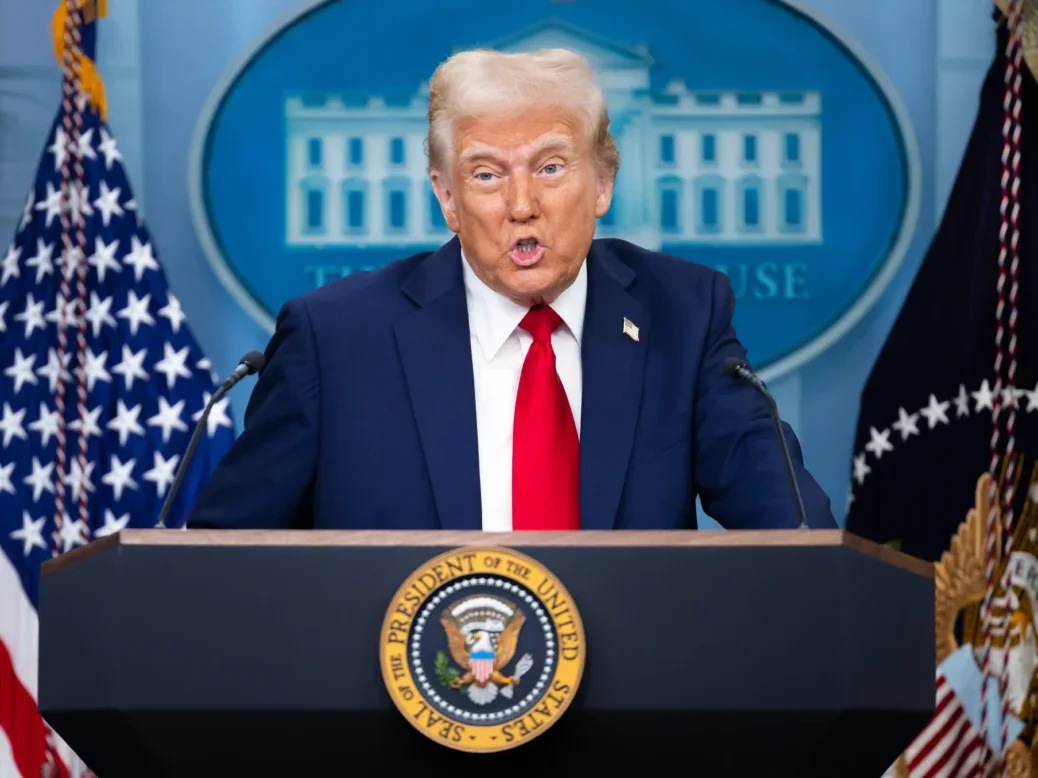
[ad_1]

Why doesn’t the global news industry say more about Trump’s influence on news and the public’s right to know?
This is the question posed by the CEO of the International Media Association, Earl Wilkinson before The upcoming World Conference of the Media Authority in New York on May 25.
Press Gazette spoke to Wilkinson before Trump announced a trade war on the rest of the world, thus adding a possible global recession to the challenges facing publishers.
Speaking via a video call from the United States last week, Wilkinson said: “I am really surprised by the lack of warning in the media.”
Earlier, his fears were explained in an Inma blog that warned: “The global ecosystem in which news media companies operate for the benefit of major technology companies have changed, and handrails have been reduced for artificial intelligence, and the principles on which the press is based has become.”
He told Press Gazette: “We are the Organization of best practices, unusual to put our own views. My blog post is not historically the space we occupy,” he told Press Gazette.
Over the past fifteen years, publishers have become dependent on two American technology giants – Meta and Alphabet – to discover the Internet. At the same time, these two companies have come to the occurrence of news publishers in the advertising market.
Wilkenson said that these companies (as well as Amazon and X) have reinforced themselves behind Trump’s “first shield” of Trump when it comes to organization in a move that might be exposed to hundreds of millions of news industry revenues.
He said: “We believe that publishing rights issues, artificial intelligence and freedom of the press are thrown into a bucket with” Do you want our military help “?
“The largest international impact on the Trump administration was about the content settlements agreed by Google, Meta and others.
“This means that those countries that transferred these lines to the finish line will find that the finish line has moved.”
He said that the renewal of current agreements is also a question.
The Canadian government forced Google to pay 55 million pounds to support the Canadian news industry earlier this year.
It also made separate deals with publishers in France, Germany and Australia to avoid the threat of legal organization.
Wilkenson’s analysis indicates that UK publishers should not expect any money flowing close to Google and Facebook as a result of the Digital Markets Law, Competition and Consumer Law. This legislation in the UK gives the fine of American technology giants by 10 % of the world’s rotation if the dominant positions are used.
The new reality is that any new restrictions on American companies can be bound to use Donald Trump for definitions to protect American companies.
Meta and Alphabet already collect more than 20 billion pounds annually in UK revenues, about two thirds of the British advertising market, with the tax of companies operating in tens of millions.
Google began to provide the argument against pushing publishers to the content by saying that it does not achieve any advertising revenues from the news content.
The UK publishers expressed his warning, in a rare presentation of solidarity, that the Improvised Intelligence companies have stolen their content to train the answers that compete with them directly. They are seeking a decline from the position of UK government, a plan to drop copyright to facilitate artificial intelligence companies theft of original work.
In response to his question about his views of the last Google study, Wilkenson said: “I have not yet seen any unbiased study looking at the influence of news on Google. What I see from Google and some news publishers compete for the legal cases trying to win.”
In general, he said that publishers need to prepare for a completely different global system as the United States government operates along with technology giants instead of seeking to reduce their excessive strength.
“Trump has approached one of the organization of large technology, Biden also approached. What Trump is radically different. He:” Let’s come as part of what a very political treatment relationship. Let’s see what we can do together. “
His biggest advice for publishers?
“We have to create a direct relationship with our readers.”
This may include a return to more investment in marketing publishers themselves, rather than relying on research and social to reach new readers.
In his blog, publishers urged to double quality and basic values in order to stand out in the new digital world.
“The ecosystems of research and social became more dirt like handrails, examination of facts and artificial intelligence defects create less reliable and confident soup.
Email piged@pressgazette.co.uk To refer to errors, give the story tips or send a message to publish on the “Letters Page” blog
